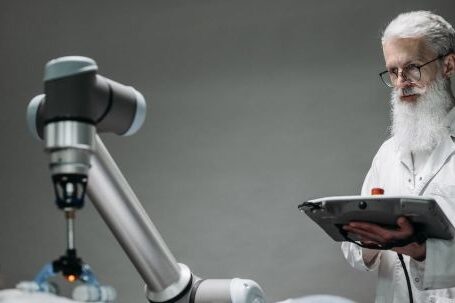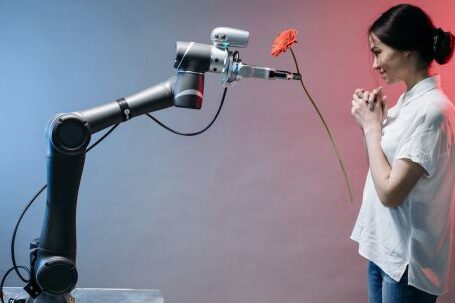In recent years, we have witnessed a rapid advancement in the field of artificial intelligence (AI) that is shaping the way we live, work, and innovate. AI technology is revolutionizing industries across the globe, and its impact on the innovation landscape cannot be understated. From healthcare to finance, transportation to entertainment, AI is transforming the way we approach problem-solving and pushing the boundaries of what was previously thought possible. This article explores the profound impact of AI on innovation and how it is reshaping the future.
The Rise of AI in Innovation
AI has become a driving force behind innovation due to its ability to process massive amounts of data, identify patterns, and make predictions with unprecedented accuracy. This has opened up new opportunities for businesses and researchers to solve complex problems and develop groundbreaking solutions. Whether it is developing personalized medicine, optimizing supply chains, or creating autonomous vehicles, AI is at the forefront of innovation across industries.
Enhancing Efficiency and Productivity
One of the key benefits of AI in innovation is its ability to enhance efficiency and productivity. By automating repetitive tasks and streamlining processes, AI frees up valuable time and resources that can be redirected towards more creative and strategic endeavors. This allows businesses to innovate at a faster pace and stay ahead of the competition. For example, AI-powered chatbots have revolutionized customer service by providing instant and personalized support, reducing the need for human intervention.
Unlocking New Possibilities
AI has also unlocked new possibilities for innovation by enabling technologies that were previously unimaginable. Machine learning algorithms, for instance, have revolutionized the field of image recognition, enabling computers to accurately identify objects and people in images or videos. This has paved the way for advancements in areas such as autonomous vehicles, facial recognition systems, and medical diagnostics. AI has also brought about advancements in natural language processing, enabling virtual assistants like Siri and Alexa to understand and respond to human speech.
Addressing Complex Challenges
AI has the potential to address some of the world’s most complex challenges. In healthcare, AI is being used to analyze medical data, identify disease patterns, and develop personalized treatment plans. This has the potential to revolutionize patient care and improve outcomes. In climate change research, AI is being used to analyze vast amounts of data and develop models to predict and mitigate the impact of global warming. By harnessing the power of AI, we can tackle these complex challenges more efficiently and effectively.
The Ethical Implications
While the potential of AI in innovation is immense, it also raises important ethical considerations. As AI becomes more advanced and autonomous, questions arise regarding privacy, security, and the impact on jobs. It is crucial to ensure that AI technologies are developed and deployed in a responsible and ethical manner. This requires thoughtful regulation, transparency, and ongoing dialogue between policymakers, researchers, and the public.
The Future of AI in Innovation
As AI continues to evolve, its impact on the innovation landscape will only grow stronger. From self-driving cars to personalized medicine, AI will continue to push the boundaries of what is possible and reshape industries across the globe. Embracing AI as a tool for innovation will be crucial for businesses and researchers to stay relevant and competitive in the rapidly changing world.
Conclusion: Embracing the AI Era
The AI era is transforming the innovation landscape, offering new possibilities and addressing complex challenges. From enhancing efficiency and productivity to unlocking new frontiers, AI is reshaping industries and pushing the boundaries of innovation. However, it is important to address the ethical implications and ensure responsible development and deployment of AI technologies. As we embrace the AI era, we must harness its potential while remaining mindful of its impact on society. Only then can we fully realize the transformative power of AI in shaping the future of innovation.





